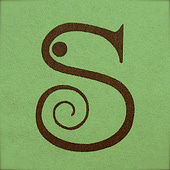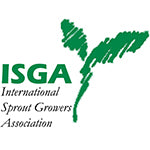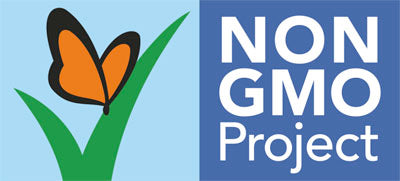Seed Preparation
Prepare Your Seeds for Sprouting
Though it’s not always necessary, it’s a good idea to clean your seeds before you Soak them.
Besides rinsing them, you should also consider adopting the habit of culling through your seeds*. Beans especially should be culled because they can contain non-seeds (bean-shaped rocks or compressed clumps of earth, though rare, are not unknown). Small seeds are too tiny to cull, but Radish and larger seeds should be checked for plant parts, pebbles, broken or damaged seeds, or seeds that just don’t belong (like weed seeds). Most of that stuff will work its way out as your crop progresses. Most plant pieces or damaged seeds will float and can be poured off after soaking. If any weed seeds are present (rare, rare, rare), they will not sprout or will be so minimal as to be unnoticeable. Any bits of earth will likely break apart and rinse away as your crop progresses. It's little rocks that you should watch out for (they are rare, but you should still check). What we are saying is: we are not liable for anything that happens due to unwanted objects in the seed we sell. Sorry, it’s just a liability thing—welcome to the 21st century in the US of A.
You’ll find that some of our seed information pages contain the Seed-Prep step, while others do not. Though we ourselves only perform Seed-Prep on a few seeds, we suggest that you should develop better habits and do it on all of them. It never hurts to check your seed and rinse it before Soaking!
Certain seeds have more of a need than others:
Mung Beans are grown in China and are sometimes, even these days, dried on dirt roads. Not surprisingly, they can be a bit dusty as a result.
Alfalfa and Clover (and therefore all of our Leafy sprout blends) are polished. Polishing is a modern method of seed scarification, which is intended to make the seed take up water more readily and germinate faster. Polishing is like sanding, and though it leaves behind dust, the positive aspects far outweigh the downside.
Radish seeds often contain some wild sunflower and buckwheat in their number. We don’t remove them before soaking—it would be a real drag—but we get rid of them when we De-Hull when the crop is done.
Some Grains will have certified organic (and edible) insect powder (diatomaceous earth) on them to keep grain weevils at bay. We rarely have grain with this powder, as we prefer freezing to control weevils. If your grain is powdery, just rinse it like any other seed before Soaking.
There are other examples, but you’ll find out about those seeds on their detailed information pages. Like we say: Culling through your seeds before prep is a good habit, but don’t lose any sleep over it. After all, we sell very good seeds—so good that we couldn’t stand to deal with bad ones!
The Method
You can use a sieve or colander for this task, as long as your seeds won’t fall through the holes. Some of our Sprouters are perfect for this too. These are the best, and in both cases, you can prep and move right on to sprouting:
Easy Sprout
Jar with Screen Lid
Whether you use one of our Sprouters or your own container, it should be very clean—preferably sterile. Scrub it well with soap and water, and use something more when necessary.
Put your seeds in the Sprouter or another container and run water through them until the water runs clear. Stir the seeds up with a spoon, fork, or use high-pressure water to make sure they’re all well bathed. That’s all there is to it.
Notes
* As a rule, real sprouting seeds (those grown by farmers for or supplied to the sprout industry) go through a very thorough cleaning process. Rarely will you find anything other than high-germinating seeds, but non-seeds, similarly sized weed seeds, small rocks, or bits of soil can sometimes get through. You should inspect your seeds before or after harvesting your crop.
Sprouting seeds differ from other seeds in several ways. They should have a high germination rate, be cleaned beyond the level of regular seeds, and be tested for pathogens. This is true of all the seeds we sell. It may not be the case with store-bought seeds, which are often meant for cooking. If your store-bought seeds don’t sprout, buy fresh, clean seeds from a trusted source!
All of the seeds we sell are tested by our suppliers and certified free of pathogens.
Nowadays, the conventional (non-organic) sprout industry demands that all seeds be soaked in a bleach solution to make them “safe.” As you probably know, we have a very different opinion on this. In our view, if you feel the need to bleach your seeds, it’s hardly worth eating sprouts. Bleach kills good bacteria, is a pollutant, and is a known carcinogen.
For more information on sprout safety, check out our section on sprout safety.



